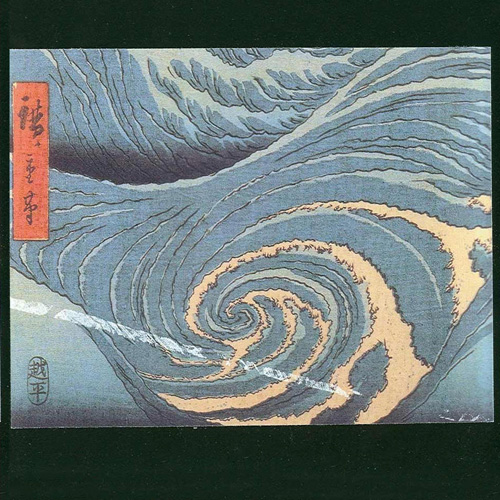What Links Here?
Outbound Links
For a successful life
The floating world was originally
a Buddhist idiom
It saw all of human existence
as a foamy illusion
and a fraud to be outgrown.

With typical irreverance the townspeople
took the term
embraced it
transformed it
and turned it into a glowing paean to
the passing pleasures of life
A character in one of the stories of Ihaira Saikaku
sermonizes on how to make money and offers this advice
(From "The Japanese Family Storehouse; Or the Millionaires Gospel Modernised")
For a successful life, ordered into percentile rankings of efficacy, one must:
- Rise early from bed - 10%
- Be devoted to the family business - 40%
- Work after normal hours - 16%
- Be thrifty - 20%
- Maintain good health - 14%
One's success in the game of life will be eroded by any of the following:
- Spending money on expensive food and women, wearing silk kimonos everyday.
- Using Private carrying chairs for wives, or obtaining music and card playing lessons for marriageable daughters.
- Drum lessons for sons of the house.
- Time spent on the following activities, is time, money and virtue wasted: football, miniature archery, incense-appreciation classes, poetry contests.
- Unnecessary renovations to the house, addiction to the tea-ceremony.
- Cherry-blossom viewing, boat trips, daily baths.
- Spending nights on the town, gambling parties, playing indoors games.
- Lessons for suburbanites in sword-drawing and duelling.
- Temple visits, and preoccupation with the next world.
- Becoming involved in the troubles of others, and standing surety for others' debts.
- Litigation over reclaimed land, and participation in mining projects.
- Saké with the evening meal, excessive pipe-smoking, unnecessary trips to Kyoto.
- Sponsoring charity wrestling; excessive contributions to temples.
- Carving small articles during working hours; collecting gold sword-fittings.
- Familiarity with actors and pleasure districts.
- Borrowing money at more than 8% per month. All these are more deadly than cantharides or arsenic.
The Floating World (ukiyo) was an expression of the new economy and social ambitions of the common townspeople of the Edo period (1615-1868). It was, specifically, a world of play and entertainment in Japan's three main cities (Edo [now called Tokyo], Osaka, and Kyoto).